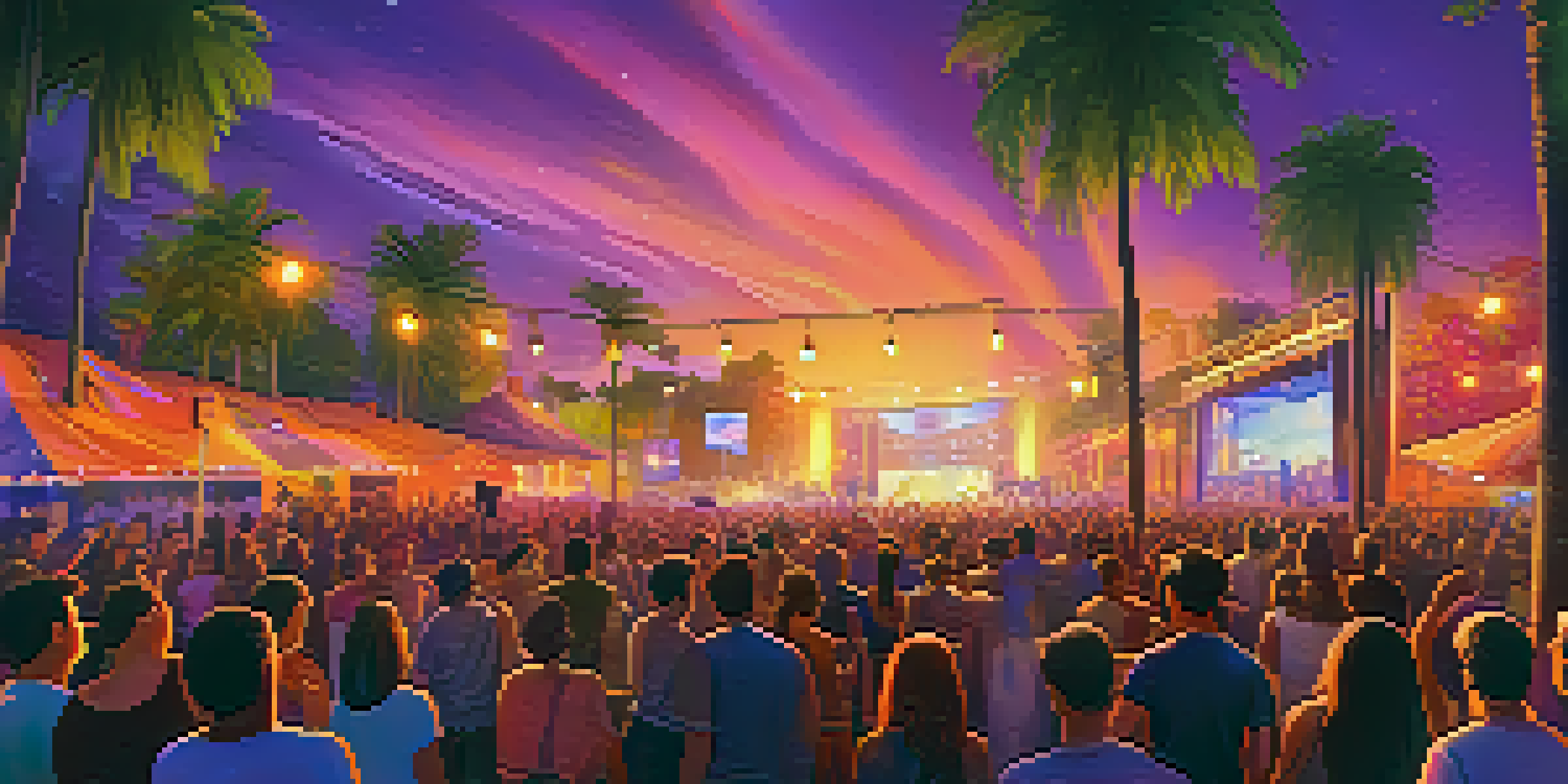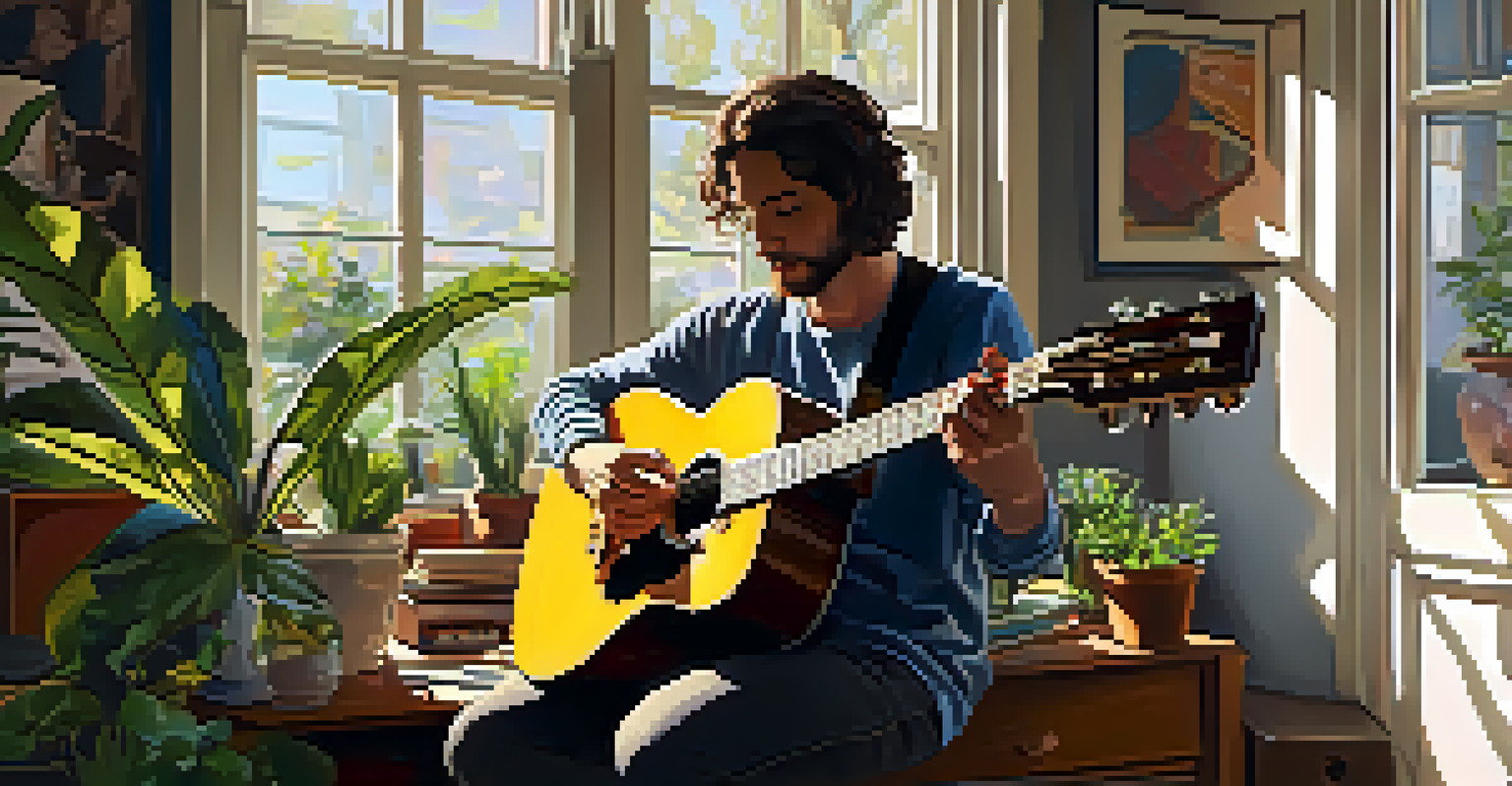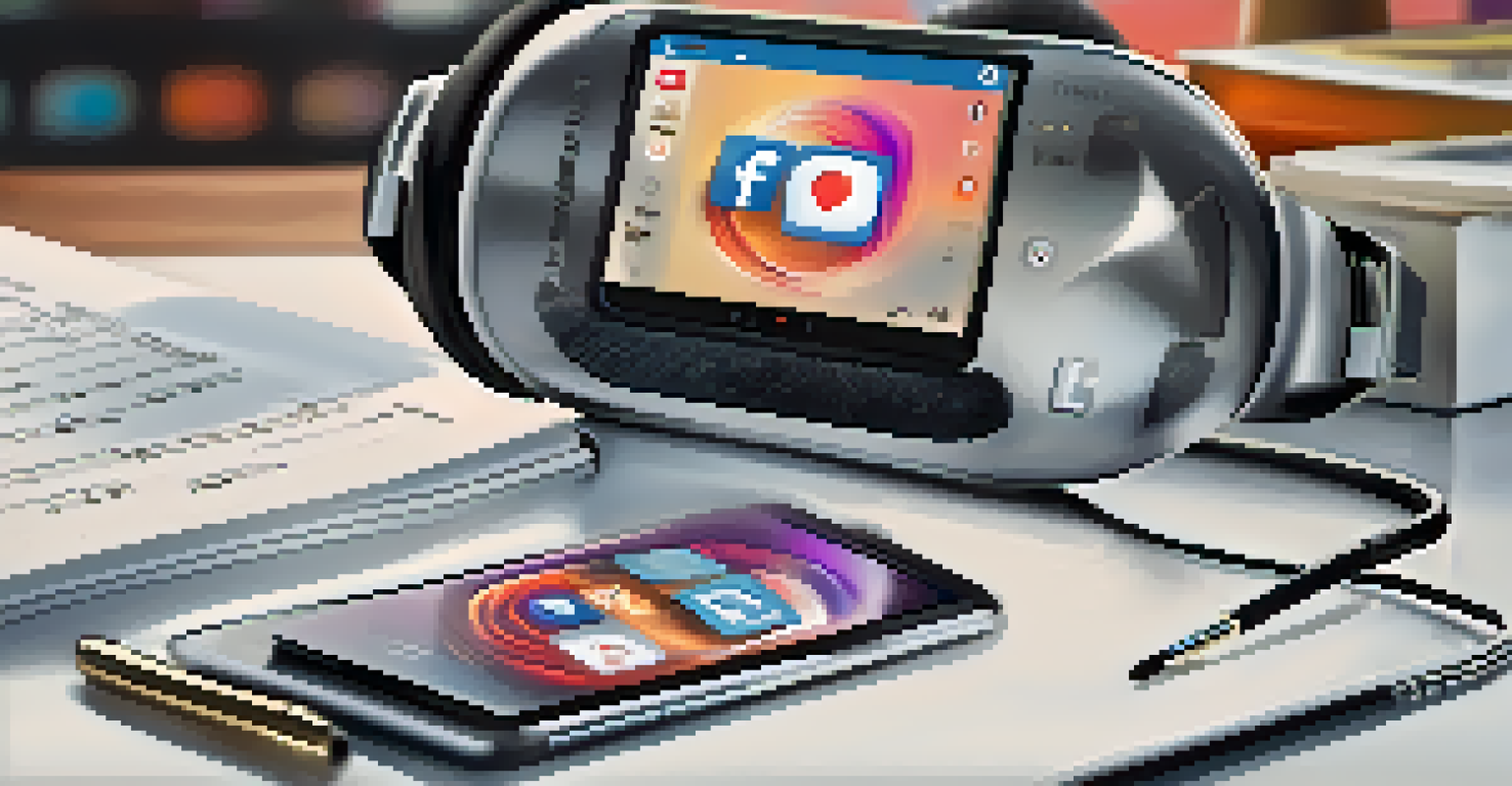Social Media's Role in the Global Music Landscape

The Evolution of Music Promotion Through Social Media
In the past, artists relied heavily on record labels and radio stations to promote their music. However, the rise of social media has transformed this landscape, allowing musicians to connect directly with their audience. Platforms like Instagram, TikTok, and Twitter have become essential tools for sharing new releases and engaging fans in real-time.
Social media is changing the way artists and fans interact, providing a platform for direct engagement and community building.
Today, a single post or viral video can catapult a song to international fame overnight. This shift not only democratizes music promotion but also gives artists more creative control over their branding and messaging. Independent musicians, in particular, benefit from this newfound ability to reach global audiences without the backing of major labels.
For example, artists like Lil Nas X leveraged TikTok to create buzz around their hit 'Old Town Road,' demonstrating the power of social media in launching careers. As this trend continues, it's clear that social media is a game-changer for music promotion.
Building Communities: Fans and Artists Unite Online
Social media has transformed the way fans interact with their favorite artists, fostering a sense of community that transcends geographic boundaries. Platforms enable fans to share their thoughts, experiences, and even create fan art, forging connections with like-minded individuals worldwide. This communal aspect enhances the overall music experience, turning passive listeners into active participants.

Artists often engage directly with their fans through Q&A sessions, live performances, and behind-the-scenes content, making them feel valued and heard. This direct line of communication not only builds loyalty but also creates a feedback loop that influences future music and marketing strategies. It's a win-win situation for both parties.
Social Media Transforms Music Promotion
Platforms like TikTok and Instagram empower artists to promote their music directly to fans, bypassing traditional gatekeepers.
Take, for instance, the K-pop phenomenon. Groups like BTS have cultivated massive global fanbases known as ARMY, who actively participate in promoting their music and advocating for social causes. This relationship highlights how social media can empower both artists and fans.
The Viral Nature of Music: Trends and Challenges
Social media's potential for virality means that a catchy song can quickly become a global sensation, but this comes with its own set of challenges. The race for virality often leads to a focus on creating music that caters to trends rather than artistic expression. While this can yield immediate success, it may not contribute to a sustainable career in the long run.
In today's digital age, the key to success in music is not just the music itself, but how well you can connect with your audience online.
Moreover, algorithms on platforms like TikTok and Instagram can dictate which songs gain traction, making it crucial for artists to adapt quickly. Musicians may feel pressured to produce content that fits the latest trends, risking their unique sound. This constant game of catch-up can be exhausting for many.
Yet, some artists skillfully balance trendiness with authenticity. For example, Olivia Rodrigo's 'drivers license' achieved massive success while remaining deeply personal, proving that it is possible to connect with audiences on a meaningful level while still riding the viral wave.
Monetization Opportunities: New Revenue Streams
Social media platforms now offer various monetization options for artists, helping them diversify their income streams. From sponsored posts and merchandise sales to exclusive content subscriptions, musicians can capitalize on their online presence. This shift is particularly beneficial for independent artists who often struggle with traditional revenue models.
For instance, platforms like Patreon allow fans to support their favorite artists directly in exchange for exclusive content. This model creates a more sustainable income source that is less reliant on record sales or streaming royalties, which can be minimal. Artists can now build a more stable financial foundation for their careers.
Artists Build Communities Online
Social media fosters a unique connection between artists and fans, creating loyal communities that actively engage in promoting their music.
Additionally, live streaming has exploded in popularity, especially during the pandemic. Artists can perform for fans worldwide, generating ticket sales and donations that directly support their work. This evolution in monetization reflects the changing dynamics of the music industry.
The Role of Influencers in Music Discovery
Influencers play a significant role in shaping music discovery on social media. With their large followings, they can introduce new songs to audiences who may not have encountered them otherwise. A single recommendation from a popular influencer can lead to a surge in streams and downloads, showcasing the power of social media in music promotion.
Moreover, influencer partnerships have become a common strategy for artists looking to expand their reach. Collaborating with influencers allows musicians to tap into new fanbases, aligning their music with specific lifestyles and trends. This approach can create a symbiotic relationship where both parties benefit.
For example, the viral success of the song 'Dance Monkey' by Tones and I can be partly attributed to influencer trends on platforms like TikTok. As influencers showcased the song in their videos, its popularity skyrocketed, illustrating how influential these collaborations can be.
Globalization of Music: Bridging Cultures Online
Social media has made it easier for artists from different cultures to share their music with a global audience. This cross-cultural exchange enriches the music landscape, allowing diverse sounds and genres to gain recognition. Platforms like YouTube and Spotify have playlists dedicated to global music, promoting international artists and expanding listeners' horizons.
One exciting development is the fusion of genres, where artists blend traditional styles with contemporary elements. For instance, the collaboration between American rapper Travis Scott and Brazilian artist Anitta showcases how social media can break down cultural barriers and create innovative music. This blending of influences not only broadens the audience but also fosters appreciation for various musical traditions.
Influencers Drive Music Discovery
Influencers significantly impact music discovery by introducing new songs to their followers, often leading to viral success.
Additionally, global music festivals often leverage social media to reach international fans, showcasing artists from different backgrounds. This interconnectedness highlights how social media can serve as a unifying force in the music industry.
Navigating the Challenges of Social Media Presence
While social media offers numerous benefits, it also poses challenges for artists. The pressure to maintain a consistent online presence can lead to burnout, especially for those who are already juggling the demands of creating music and performing. Musicians must find a balance between engaging with their audience and preserving their mental health.
Furthermore, the ever-changing algorithms on social media platforms can be frustrating. Artists may invest time and effort into creating content that doesn't reach their intended audience due to algorithmic shifts. This unpredictability can lead to feelings of discouragement and uncertainty about how to effectively promote their work.

To combat these challenges, many artists are now prioritizing authenticity over perfection. By sharing their journey, struggles, and successes, they create a deeper connection with their audience. This shift toward genuine storytelling can alleviate some of the pressure while still allowing for meaningful engagement.